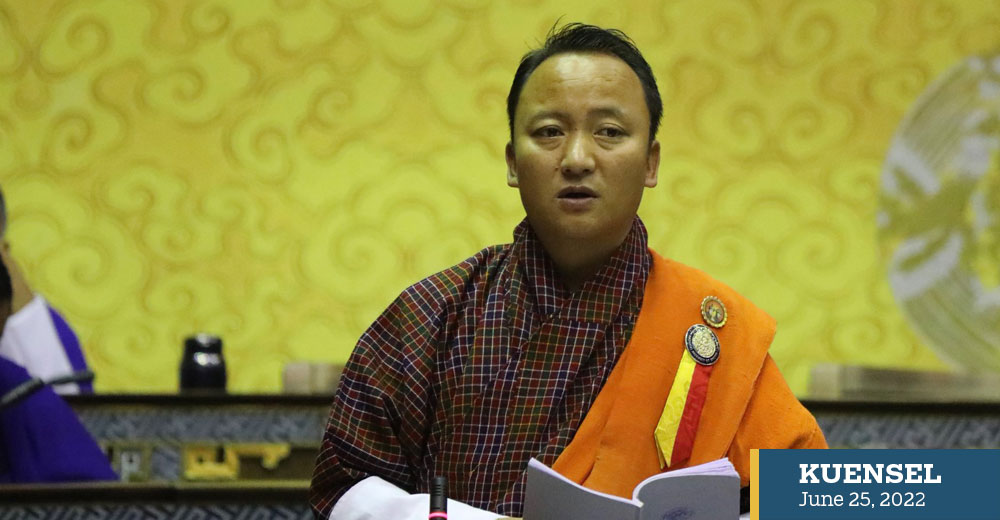Nima Wangdi
For several years now, peri-urban residents in numerous dzongkhags have been paying higher taxes meant for urban dwellers without receiving any urban facilities or access to amenities. Residents, over the years, have written repeatedly to various authorities and representatives to resolve the issue.
Mongar’s Member of Parliament (MP) Karma Lhamo raised the issue at the National Assembly for the residents of Naling, which is next to Mongar town but does not have any urban amenities except for a farm road.
Karma Lhamo said that levying urban tax on the residents who don’t have proper drinking water supply or plotting and demarcations has become a problem. “The village partly falls under Throm.”
She said, “The residents said its unfair to impose an urban tax on them.”
In 2016, the works and human settlement ministry issued an executive order that exempted the people in this village from the urban tax. “However, the urban tax was again imposed after two years,” Karma Lhamo said.
She asked the Finance Minister, Namgay Tshering during the question hours yesterday at the National Assembly for a response from the government on the issues.
Finance Minister Namgay Tshering said that the problem started with the first government in 2010.
“Since then, governments initiated temporary measures to these problems. But the problems worsened during the second government’s tenure in 2015,” Lyonpo said.
Lyonpo Namgay Tshering said that previous elected governments had different plans for declaring different townships. They did not consider if the old tax system would be applicable. “The question has been asked for three years in the house for now and it is an important issue.”
He said that Lhayulkha in Haa, Jalikhar in Bumthang, Dewathang in Samdrupjongkhar and Pasakha in Phuntsholing have the same problem. “There is no Act for properly tax but to this day, we have been following the Revised Taxation Policy, 1992.”
Lyonpo said that the government can’t focus on addressing the problem only in Mongar and that it would work to solve problems in all the dzongkhags together. “For now, although the tax should be imposed in uniform, different dzongkhags have different systems.”
“Having a dedicated property tax Act should be the permanent solution to this problem,” Lyonpo said.
The government has been discussing it for three years and the outcome is expected soon, the minister said.


